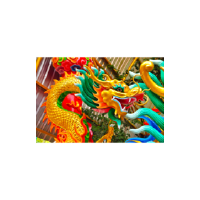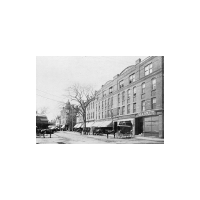
The Ultimate Directory on History Webinars
Search our directory for upcoming webinars on History
Upcoming Webinars

Histories Webinar | Novel Insights into Naval Warfare and Diplomacy in Medieval Europe
Naval warfare and diplomacy in the Middle Ages have increasingly captured the attention of historians, unveiling the significance of maritime power in shaping the political, economic, and cultural development of medieval Europe and the Mediterranean. While trade, exploration, and conquest flourished through the opportunities offered by the sea, it also presented considerable challenges, including threats from pirates and rival states. Diplomacy, inseparably tied to naval strength, emerged as an essential tool for forging alliances, negotiating treaties, and resolving conflicts.This webinar is inspired by the ambition to shed new light on these fascinating topics. It will explore not only the strategies and consequences of naval conflicts but also delve deeper into the intricate networks, actors, and instruments of maritime diplomacy in the Middle Ages. The discussions will address a diverse array of themes, including the organization and functionality of medieval fleets, the role of economic resources in sustaining maritime endeavors, and the often-overlooked participation of women in naval warfare and diplomacy.With a wide-ranging focus that spans methodology, social impacts, and regional perspectives, we aim to ignite thought-provoking conversations and inspire novel research in this dynamic field. We are thrilled to have you join us as we navigate through the currents of history and uncover hidden treasures of medieval maritime studies.Event Chair: Prof. Dr. Jesús Ángel Solórzano Telechea, GOBPORT Research Group. Department of Historical Sciences, University of Cantabria, Spain.Speakers: Dr. Victòria A. Burguera-Puigserver, Center for European History and Cultural Studies (ZEGK); Ruprecht-Karls-University Heidelberg, Germany; Professor Abdeldjabar Seddiki, University Centre of Nour El Bachir, Algeria; Dr. Pablo García Fuente, Department of Historical Sciences; University of Cantabria, Spain.
by Sciforum
4/22/2025 3:00 PM
Previous Webinars

Webinar: Gravestone Project in South Africa Over 25 Years: From Only a Name on a Stone to Finding Your Roots!
The IFLA Local History and Genealogy Section cordially invites you to a webinar on 7 March 2024, 17:30 – 19:00 CET about conducting genealogical research in South Africa with the help of tombstones and graves. In the 1990s, a project was started by the Genealogical Society of South Africa (GSSA) to document graves sites all over South Africa. Looking back at this project over a period of 25 years, with almost 1 million graves listed, we will take you on the journey documenting and creating a platform that is free and open for all to use not only in South Africa.
by IFLA
3/7/2024 4:30 PM

Qianlong, Master of Nets: Lunar New Year in the Qing Palace
Join us for a journey into the heart of the Qing Dynasty’s imperial court with our upcoming webinar, featuring Dr. Daniel M. Greenberg. Our session will focus on the remarkable artwork “All Foreign Countries Bearing Tribute” (萬國來朝圖), a representation of the Lunar New Year created for the Qianlong court. Dr. Greenberg will guide us through the original context of this masterpiece, highlighting its unique blend of Chinese classical painting and European ethnography. This exploration will reveal a distinctly Chinese perspective on state ritual and the management of foreign affairs, offering a fascinating glimpse into the cultural and political dynamics of the Qing Dynasty.
2/29/2024 12:00 PM

Eating Dangerously: How a Chemist’s “Poison Squad” Won the Battle for Food Safety in the US
In the late 19th century, simply eating food could be a genuine hazard. To increase the shelf life of their products, food manufacturers intentionally added dangerous chemicals like formaldehyde and salicylic acid to everything from milk to meat without any of the regulatory oversight that we take for granted today. Join Pulitzer Prize winner and New York Times-bestselling author Deborah Blum as she reveals the dramatic true story of how food was made safer in the United States during a 30 year food safety battle for consumer protection by chemist Dr. Harvey Washington Wiley and his heroic Poison Squad.
2/15/2024 7:00 PM

AALL Webinar: What in the World is Happening.... in Niger?
The FCIL-SIS DEI committee's webinar series on global events continues with a webinar on last summer's coup in Niger. In this webinar, Aluko Opeyemi Idowu, a professor of political science in Ajayi Crowther University in Nigeria will present on the political situation in Niger and West Africa more broadly, providing background information on Niger's political and colonial history to help understand the underlying conflicts that led up to the coup and the larger implications for countries in West Africa. The presentation will also go over resources to help researchers learn more about the situation in Niger.
by AALL
2/7/2024 6:00 PM

Slavery in Jamaica Plain
At least 27 people of African descent were enslaved in Jamaica Plain in the 1700s. Hidden Jamaica Plain will present an overview of slavery in Jamaica Plain, a history that includes land theft, enslavement first of Native Americans and then expansion to people of African descent. Massachusetts Bay was the first colony to legalize slavery in 1641. Chattel slavery existed in Massachusetts at the time of the American Revolution and several Jamaica Plain patriots were also enslavers.
1/28/2024 7:00 PM

Know Stories - Uncovering Black HistoryMy Webinar
Oregon Black Pioneers explore an overlooked part of Oregon’s history.
1/7/2024 11:00 PM

Digital Discussion - Tootie McGregor Terry: Benefactor of Fort Myers
Tootie McGregor Terry left a legacy for the people of Fort Myers. She was a neighbor of Thomas and Mina Edison and generously gave of her wealth and her time. Her generosity made it possible for the first road in Fort Myers to be paved. She and her second husband were the donors of what today is known as Terry Park, the former site of spring training for many major league baseball teams. Join Program Manager Holly Shaffer for this free virtual presentation. Registration is required. Join Program Manager Holly Shaffer for this free virtual lecture.
12/12/2023 3:30 PM

Symposium on Zainichi Korean Literature
Date & Time: Dec 9, 2023 10:00 PM in Universal Time (UTC)
12/9/2023 10:00 PM

In a Strange Land: The American Occupation of Germany 1918-1923
America’s involvement in World War I marked its first major entry into international politics. One cost of that involvement required the U.S. to supply a force to occupy part of the German Rhineland after the war. The force, known as the U.S. Third Army, consisted of the best but overworked divisions in the American Expeditionary Forces. Join Virginia Army National Guard Command Historian Al Barnes as he explores their untold stories, including how close the “Great War” came to starting again in June 1919 and how the Americans were viewed by the Germans they “occupied.”
11/29/2023 2:30 PM